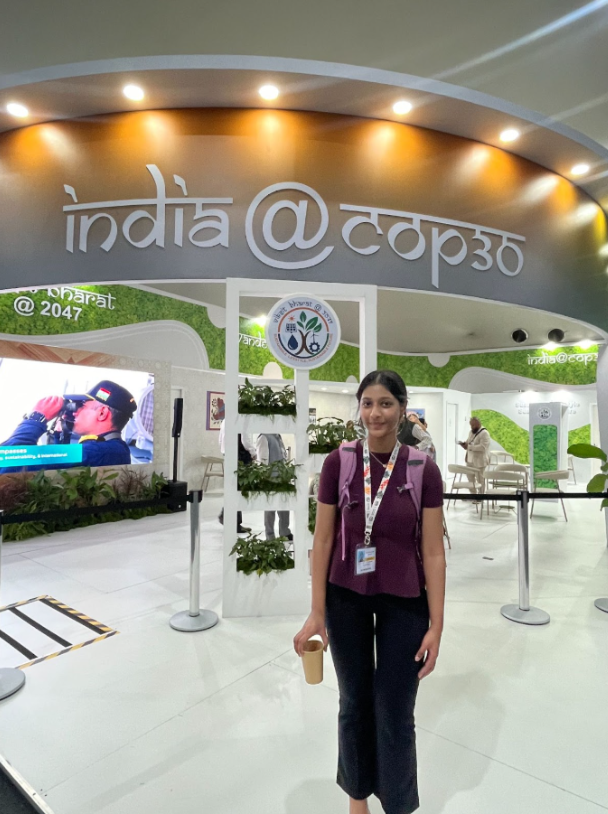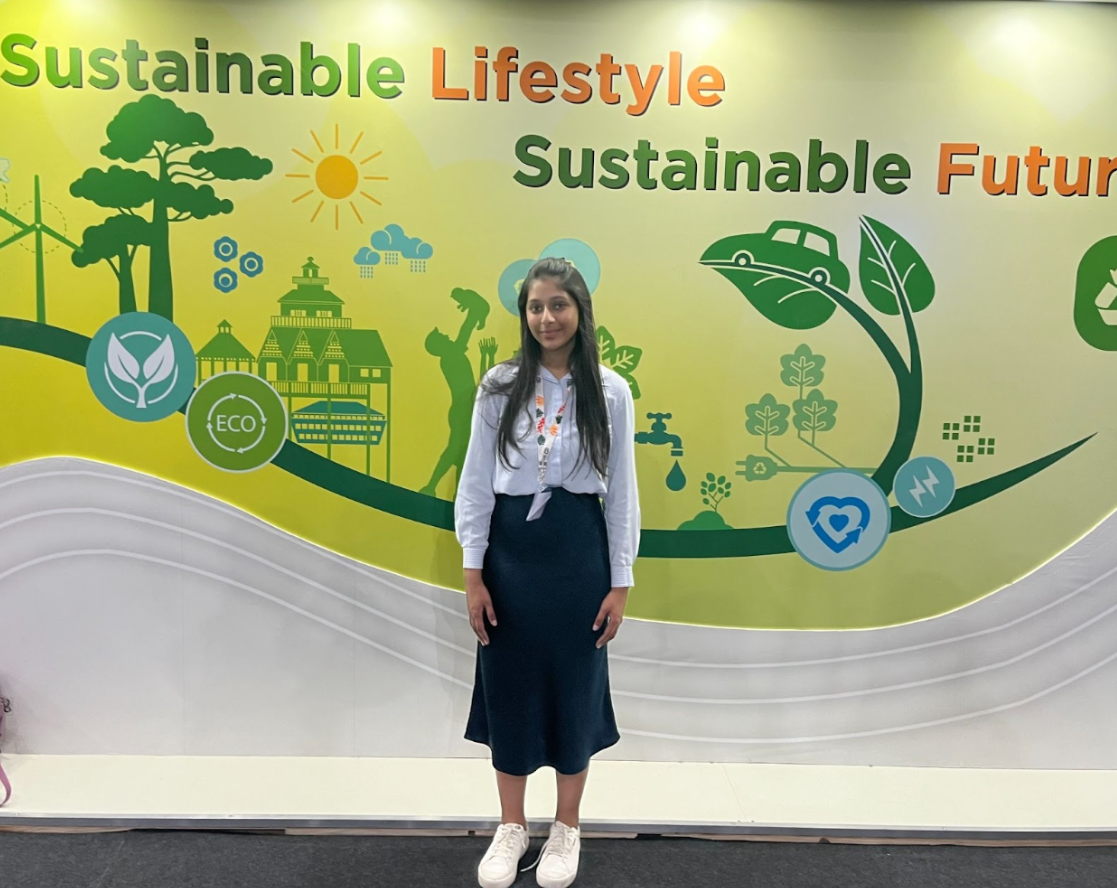It is easy to get swept up in buzzwords when discussing climate change. On Day 3 of COP30, I attended a session called “America is All In: U.S. Climate Action Continues.” This panel featured former U.S. climate policy leaders who expressed their enthusiasm for continuing the fight against climate change despite the U.S. federal government not actively participating in COP30 negotiations.

More than learning about the U.S.’s persistence in staying engaged internationally, I was surprised by the diverse professional backgrounds of these officials, as someone who hopes to enter public service and contribute to policymaking on an international scale, seeing how their careers were shaped by both technical expertise and administrative experience was very insightful.
I appreciated that the U.S. representatives in this session included former negotiators who brought a mix of technical expertise as well as project and change management skills. Notably, one negotiator and former U.S. Department of State employee was trained as an environmental engineer and held a Ph.D. in the subject. He joined the Department of State after a prestigious post-doctoral fellowship at the Environmental Protection Agency (EPA), which is a testament to how much technical expertise and domain knowledge are valued in the policymaking space. I also appreciated that there was an event titled “Jobs for the Public Sector: Building a Recurrent Supply of Skilled Experts for NDCs.” Events like this signal that there is a real need for technical experts (financial analysts, scientists, legal specialists, and others) in addition to policy experts.
I also learned that there is a need for people who can manage projects and navigate the substantial amount of paperwork and administrative complexity involved in these bureaucratic processes. Trigg Talley, a former senior climate negotiator with over thirty years of experience with the State Department, emphasized that they look for people with project-management experience: individuals who can move work forward, negotiate with diverse stakeholders, and simply “get things done.” One of his fellow panelists exemplified this. This panelist did not hold a technical background but instead had relevant project management and oversight experience. Having worked in the UN Secretariat, she had a strong understanding of the legal, technical, and administrative procedures involved in drafting and passing resolutions. This experience provided a comprehensive foundation when she later moved into the U.S. Department of State, where her familiarity with these processes enhanced her negotiating effectiveness. Similarly, another panelist described the extensive inter-agency coordination her role required, particularly in preparing for G-7 and G-20 meetings as well as engagements with the International Monetary Fund and World Bank.
 Understanding how federal and multilateral institutions (such as the U.S. Department of the Treasury, Securities and Exchange Commission, Federal Reserve, World Bank, and International Monetary Fund) function and how to coordinate across them is an important yet often overlooked skill.
Understanding how federal and multilateral institutions (such as the U.S. Department of the Treasury, Securities and Exchange Commission, Federal Reserve, World Bank, and International Monetary Fund) function and how to coordinate across them is an important yet often overlooked skill.
Even though the U.S. has stepped back from formal negotiations, there is still significant demand for these skills. The current U.S. representatives are operating under the slogan “The U.S. is all in,” which signals that while they cannot negotiate, they are still present to represent the climate-forward agenda. Many current representatives and former negotiators are attending under the sponsorship of various organizations and nonprofits, continuing to collaborate with governments, NGOs, civil society, and the broader public. Their presence demonstrates that the U.S. is still “in” and invested in addressing climate change, something that underscored the importance not only of commitments, but of the skilled people who carry them out.
Pranavi Rebala is a senior studying Mathematics, Economics, and Urban & Community Studies.